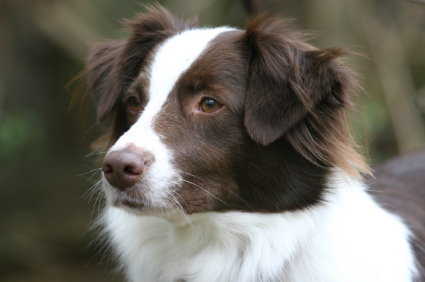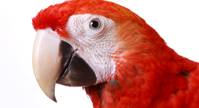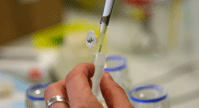Hereditary Cataracts (HSF4)
Description:
Hereditary Cataracts (HC) are a clouding of the lens of the eye caused by a breakdown of tissue in the eye. This condition  generally results in an inability to see clearly and can cause total blindness. In canines, cataracts are often familial; this type is known as Hereditary Cataracts. A mutation in the HSF4 gene causes this type of cataracts in several breeds of dogs. In this case, the dog is typically affected bilaterally, in that both eyes are affected by the cataracts. The cataracts associated with HSF4 also occur in the posterior region of the lens. They usually start by being small and grow progressively, though the speed of growth is highly variable. Some cataracts will grow so slowly that the dog's vision remains relatively clear, while others will grow such a way that the dog will quickly go blind. Corrective surgery is possible, though it is costly and is not always effective.
generally results in an inability to see clearly and can cause total blindness. In canines, cataracts are often familial; this type is known as Hereditary Cataracts. A mutation in the HSF4 gene causes this type of cataracts in several breeds of dogs. In this case, the dog is typically affected bilaterally, in that both eyes are affected by the cataracts. The cataracts associated with HSF4 also occur in the posterior region of the lens. They usually start by being small and grow progressively, though the speed of growth is highly variable. Some cataracts will grow so slowly that the dog's vision remains relatively clear, while others will grow such a way that the dog will quickly go blind. Corrective surgery is possible, though it is costly and is not always effective.
A mutation of the HSF4 gene is linked to a form of Hereditary Cataracts in Australian Shepherds. This mutation affects Aussies differently then Boston Terriers, French Bulldogs and Staffordshire Bull Terriers in that the disease is dominant but not completely penetrant. This means that only one copy of the mutation is necessary to predispose a dog to the disease. However, incomplete penetrance means that a dog that has this mutation will not always develop HC. Research suggests that the mutation makes a dog 12 times more likely to develop posterior bilateral cataracts at some point in their lifetime. It is likely that a secondary gene interaction occurs in the small percentage of dogs possessing the HC mutation but does not develop cataracts. This interaction is not yet understood.
It should also be noted that not all cataracts are hereditary. Cataracts can also be caused by old age or injury. Also, cataracts that occur in different regions of the lens can also be familial, however, are not attributed to this gene mutation.
Sample Type:
Animal Genetics accepts buccal swab, blood, and dewclaw samples for testing. Sample collection kits are available and can be ordered at test now.
Testing is Relevant For the Following Breeds:
Australian Shepherd
Results:
Animal Genetics offers DNA testing for dominant HC allele. The genetic test verifies the presence of the mutation and presents results as one of the following:
| HC/HC | Affected | The dog carries two copies of the mutant gene and is homozygous for the HSF4-HC gene mutation. The dog is more likely to develop bilateral posterior cataracts, and will pass on the mutation to all offspring. |
| HC/n | Affected | Both the normal and mutant copies of the gene detected. Dog is heterozygous for the HSF4-HC gene mutation. The dog is more likely to develop bilateral posterior cataracts and may pass on the mutation to all offspring. |
| n/n | Clear | Dog tested negative for the Hereditary Cataract gene mutation, and will not pass on the defective gene to its offspring. |
Submit a Sample for Testing:
To submit a sample for testing please go to test now.
To order a sample collection kit please go to order sample collection kits.
Cost per sample is $45.00. Please see our Canine Fee Schedule for all test rates.










